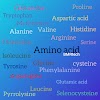What is Vitamin C? | Where is used Vitamin C?|Role of Vitamin C
Or
Vitamin C, also known as ascorbic acid and ascorbate, is a vitamin found in various foods and sold as a dietary supplement.
It is used to prevent and treat scurvy. Vitamin C is an essential nutrient involved in the repair of tissue and the enzymatic production of certain neurotransmitters. It is required for the functioning of several enzymes and is important for immune system function.
History :-
Vitamin C was discovered in 1912, isolated in 1928, and in 1933, was the first vitamin to be chemically produced. It is on the World Health Organization's List of Essential medicine. Vitamin C is available as an inexpensive generic and over-the-counter medication. Partly for its discovery, Albert Szent-Györgyi and Walter Norman Haworth were awarded the 1937 Nobel Prizes in Physiology and Medicine and Chemistry, respectively. Foods containing vitamin C include citrus fruits, kiwifruit, guava, broccoli, Brussels sprouts, bell peppers and strawberries. Prolonged storage or cooking may reduce vitamin C content in foods.
What can vitamin C do for your health?
Vitamin C is one of the safest and most effective nutrients, experts say. Though it may not be the cure for the common cold, the benefits of vitamin C may include protection against immune system deficiencies, cardiovascular disease, prenatal health problems, eye disease, and even skin wrinkling. The tolerable upper intake level (or the maximum amount you can take in a day that likely won’t cause harm) is 2000 mg a day for adults.
Vitamin C's Role in the Body
Vitamin C, also known as ascorbic acid, is necessary for the growth, development and repair of all body tissues. It's involved in many body functions, including formation of collagen, absorption of iron, the proper functioning of the immune system, wound healing, and the maintenance of cartilage, bones, and teeth.
Vitamin C is one of many antioxidants that can protect against damage caused by harmful molecules called free radicals, as well as toxic chemicals and pollutants like cigarette smoke. Free radicals can build up and contribute to the development of health conditions such as cancer, heart disease, and arthritis.






0 Comments